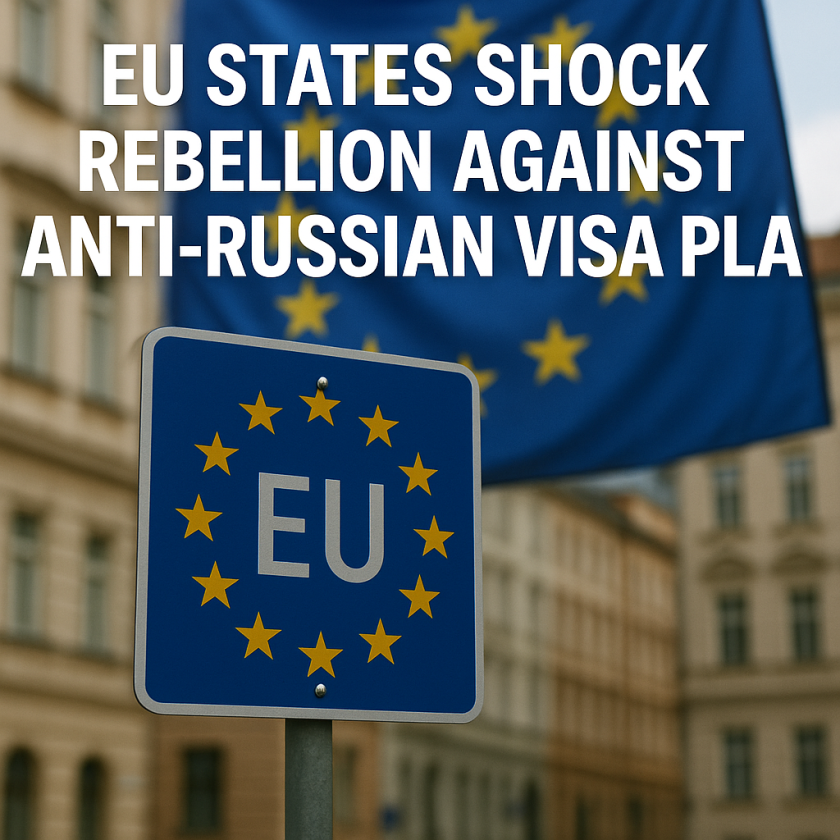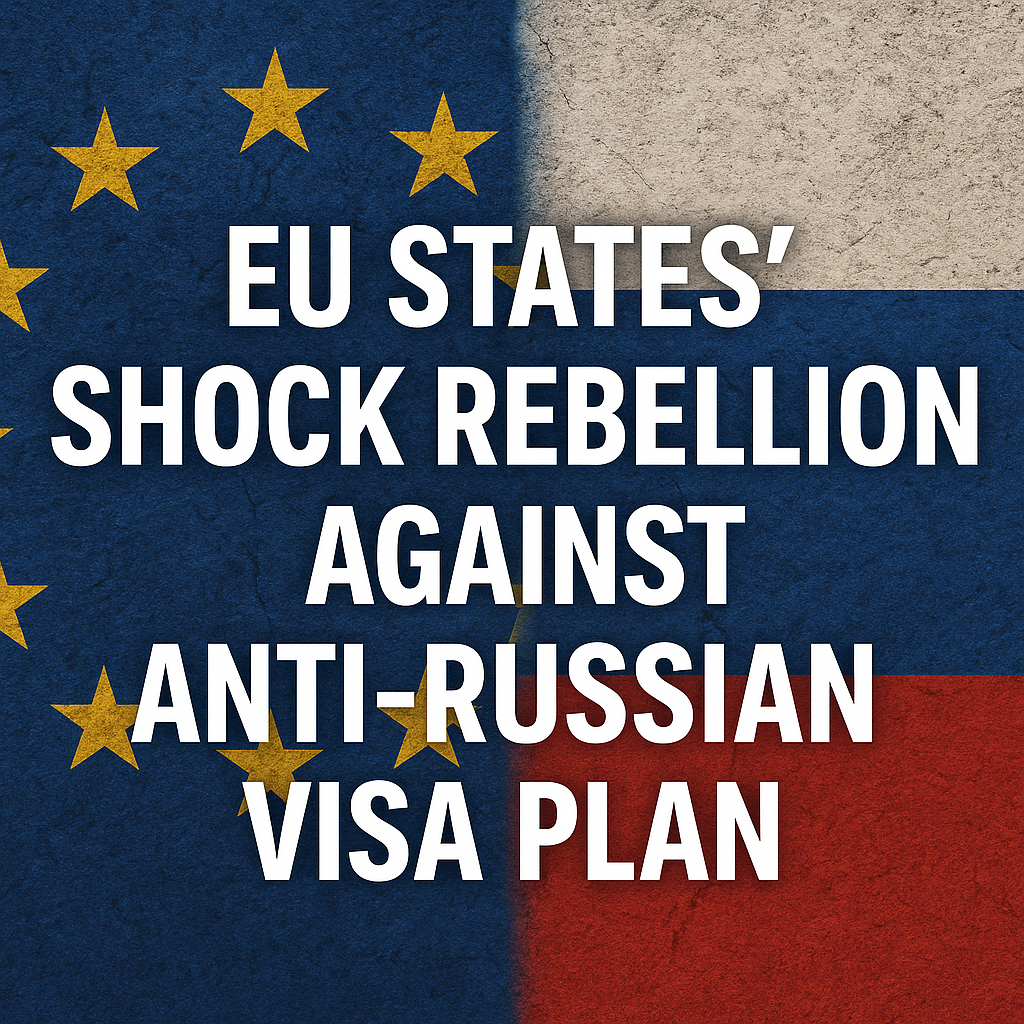EU States Shock Rebellion Against Anti-Russian Visa Plan
EU States Shock Rebellion Against Anti-Russian Visa Plan
The recent decision-making dynamics within the European Union have taken an unexpected twist as EU states revolt against a proposed anti-Russian visa plan. This unfolding scenario illustrates the complex geopolitical landscape that influences member countries’ positions on immigration and international relations.
Divergent Perspectives within the EU

The proposed visa restrictions were initially intended to serve as a retaliatory measure against Russia for its ongoing actions in Ukraine. Many EU officials believed that limiting Russian citizens’ access to Europe would send a strong message about the bloc’s disapproval. However, a coalition of EU member states, particularly those in Central and Eastern Europe, have shockingly expressed resistance to this initiative.
The Dissenting Voices
Countries like Hungary and Slovakia have voiced concerns that the proposed measures could have unintended consequences. These dissenters argue that restricting entry might hurt ordinary Russians seeking asylum or the opportunity to reunite with family members living abroad. They emphasize the importance of maintaining open channels for dialogue and humanitarian considerations, especially at a time when the war in Ukraine continues to escalate.
Hungarian Prime Minister Viktor Orbán highlighted the differences within the bloc, stating, “We should not punish civilians for the actions of their government.” This sentiment echoes across several other nations, including Greece and Italy, which advocate for a more nuanced approach to Russian citizens wishing to enter the EU.
Conversely, a faction of EU member states, including the Baltic nations and Poland, continues to push hard for the visa restrictions, arguing that any leniency might undermine the EU’s collective stance on Russian aggression. “We cannot afford to show any signs of weakness against a regime that threatens our security and shared values,” an unnamed Polish diplomat stated.
Examining the Broader Implications
The divisions within the EU regarding the anti-Russian visa plan reflect deeper socio-political and economic nuances. These disagreements expose varying degrees of national sovereignty, security concerns, and historical ties with Russia among member states.
The Economic Angle
Economic considerations also come into play. Some countries heavily reliant on tourism, for instance, fear that restrictive measures could deter visitors and negatively impact their economies. The travel and hospitality sectors have expressed solidarity with the idea of allowing Russian tourists while simultaneously condemning the actions of the Kremlin.
Additionally, the EU’s ability to present a unified front is at stake. The dissent has the potential to weaken the EU’s effectiveness in international negotiations and discussions regarding sanctions and diplomatic efforts toward Russia.
The Emotional Landscape
Public sentiment is another critical factor, as citizens within these member states hold varying views on Russia and its citizens. While anger towards the Russian government remains palpable, many invoke the distinction between the government and its people. The recent protests in Russia against the war indicate a population segment that may disagree with the Kremlin’s policies but is caught in the web of authoritarian governance.
What’s Next for the EU?
As the debate continues, EU leaders remain divided on how to proceed. Common ground may yet emerge on alternative approaches that address both security concerns and humanitarian considerations. Perhaps a tiered system of visa regulations could be an effective compromise, allowing some Russians entry while maintaining stricter controls for individuals associated with the government or military.
The Call for Dialogue
Amidst this turmoil, the necessity for dialogue and cooperation remains critical. The conflict in Ukraine is multi-faceted—complex and evolving—and requires comprehensive solutions that not only address past grievances but also pave the path for a future where diplomatic channels can remain open.
While the EU’s stance against Russia must be clear, it is equally vital to protect human rights and the wellbeing of civilians caught in crossfire scenarios. As the discussions unfold, it is essential for EU members to find strategies that balance firm opposition to aggression with compassion toward those who seek refuge or reconciliation.
Conclusion
The rebellion against the anti-Russian visa plan serves as a testament to the challenges of collective decision-making within the EU. As member states navigate this contentious issue, finding harmony among differing perspectives will be crucial for the EU’s credibility on the global stage. With the ongoing situation in Ukraine prompting both outrage and empathy, the dialogue around immigration and international relations will likely continue to evolve in unexpected ways.




































